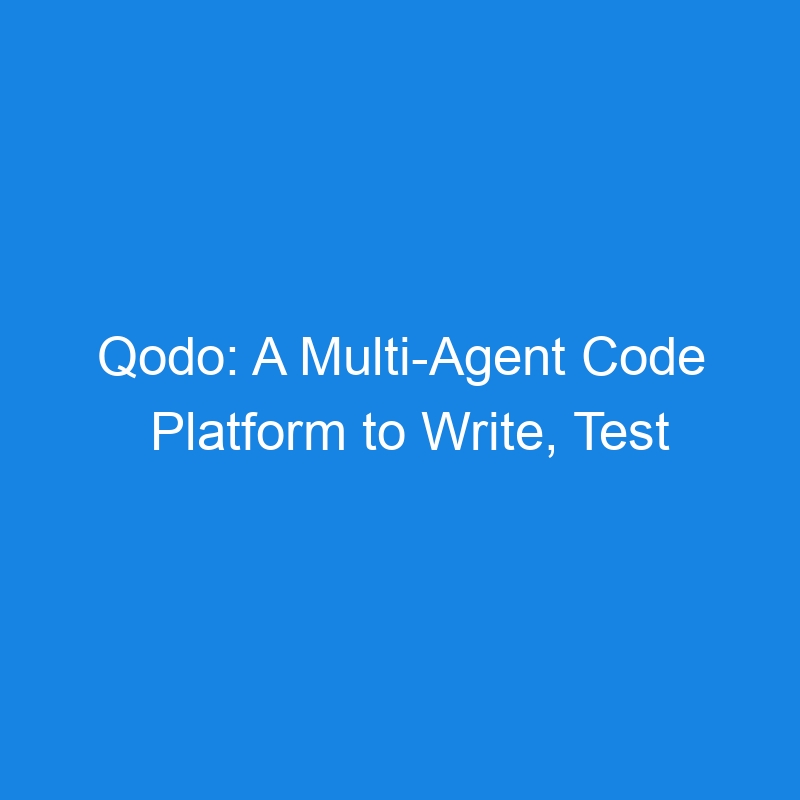
LAS VEGAS — Zero to production, AI-generated code has come a long way in two years. Gartner predicts that in 2025, 30% of code will be generated by AI. Coding is only the start. Qodo, formerly Codium, believes that this new reality means we need more AI — specifically, a multi-agent code integrity platform to write, test, and review code.
The problem with developers using code-generation tools will only get worse, said Qodo Founder and CEO Itamar Friedman in an interview at AWS re:Invent. Most enterprise developers build sophisticated, complex code. But generative AI code is just the start. The code has to stand up over time, and that means developing a platform.
Systems will break down due to poorly implemented generative AI code. The issue stands with the quality of the code. Generative AI needs agents.
An article in TechRepublic cited a study that found “the latest versions of ChatGPT, GitHub Copilot, and Amazon CodeWhisperer generated correct code just 65.2%, 46.3% and 31.1% of the time, respectively. ”
Software development requires a developer to consider code testing, code review, applying best practices and even matching code to the intent of the developer, Friedman said,
Qodo, which won the audience choice award at the AWS Unicorn Tank competition at AWS re:Invent, provides tools for checking and generating AI code.
“It enables the busy developers out there to plan, write, test, and review code using AI,” Friedman said. Think of Qodo as an army of AI agents, each one specializing in a different topic, enabling you to ensure high-quality code everywhere.”
Advanced Indexing for Code
Large language models (LLMs) understand snippets of code and even a few files well, Friedman said. That’s the enabler for reinventing software. However, LLMs are insufficient to help improve development quality, and that’s what Qodo stands for: “quality of development.”
Qodo does advanced indexing for code. “For example, in indexing, you need to chunk files,” Friedman said. But you want to chunk different files differently because you have a context window.
If you have a ReadMe file, Swagger file, or an OpenAPI, he said, you would want to chunk that differently than a regular file. You should make sure that you’re chunking classes completely.
But when you’re chunking, for example, a Swagger file, you want to chunk the function and additional context related to that which may not exist in that file.
The approach shows how delicate a user must be when chunking, for example, a ReadMe file. The context of each section is more important than just thinking about the size of each chunk.
For its middleware, Qodo has developed 30 different modules, including techniques it uses that are specific for code review and testing. The company uses methods like mutation testing and other techniques to test the quality of the tests.
It’s in these testing methods that matters get complex. Consider mutation testing systems requiring a deeper understanding of bytecode manipulation, abstract syntax tree manipulation, and source code modification.
The post Qodo: A Multi-Agent Code Platform to Write, Test and Review Code appeared first on The New Stack.
